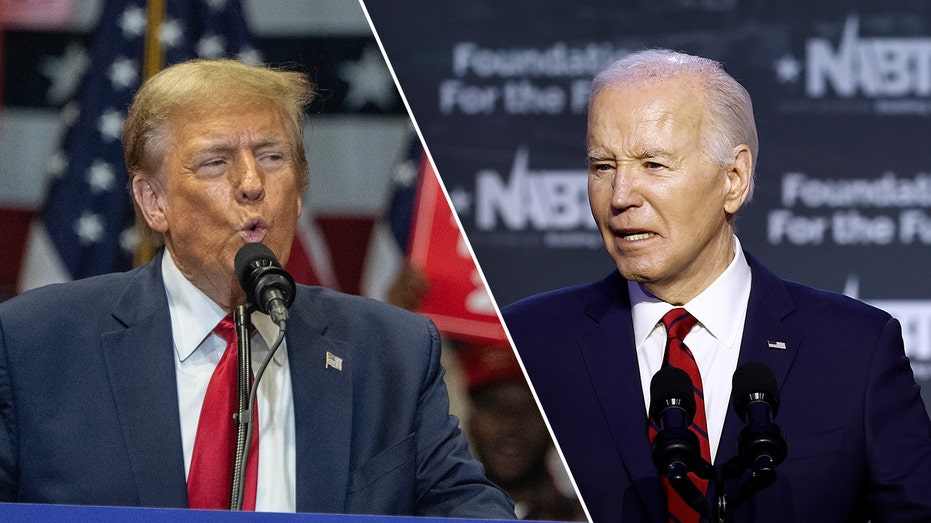Barclays, Natwest and Revolut: Top bankers chew the fat at City summit
Executives, investors and even royalty turned out for the first day of Financial Times’ annual Global Banking Summit in London on Tuesday.


Executives, investors and even royalty turned out for the first day of the Financial Times’ annual Global Banking Summit in London on Tuesday.
Fuelled by a stockpile of green smoothies, bagels and pastries, some of the industry’s biggest names gave their two cents on business, politics, regulation and the economy.
Serious topics – but organisers brought some levity in the form of MC Ali Miraj. The former Conservative parliamentary candidate, chartered accountant and part-time DJ waxed lyrical about Basel rules, M&A, and “revenue generation”. He will put on a boogie after the event’s second and final day.
The speakers reflected the two camps that have come to define competition among UK banks in recent years. Veterans of centuries-old institutions, like Natwest’s Paul Thwaite and Barclays’ CS “Venkat” Venkatakrishnan, rubbed shoulders with leaders from the neobank challengers trying to unseat them, including Revolut UK’s Francesca Carlesi and Monzo’s TS Anil.
The latter executives, both at the helm of closely-watched IPO candidates, gathered just a stone’s throw from the London Stock Exchange, where officials are keen to encourage homegrown fintech ‘unicorns’ not to snub the capital for New York.
But it was not just figures from Britain’s financial sector on display. One of the most high-profile speakers was Onur Genc, the CEO of Spain’s second-biggest lender BBVA who is currently mounting a hostile takeover bid for smaller domestic rival Sabadell, which owns Britain’s TSB.
A surprise last-minute addition was Queen Máxima of the Netherlands, a UN special envoy on financial inclusion, who spoke about everything from education to buy-now pay-later products.
High street bank bosses positive on Budget
Despite gloomy forecasts from economists and business dominating the headlines in recent weeks, Thwaite and Venkat gave more positive views on the new government’s first Budget.
Venkat highlighted the fact that 10-year gilt yields have settled back to pre-Budget levels as a sign of the package’s early “success”.
He said Labour achieved “reasonable balance between investment, spending on services, and taxation and borrowing” and that it was a “reasonable bet” for businesses to “feel happier about their circumstances” in a three-to-five-year timeframe.
Thwaite said the government made “tough choices” and praised its focus on planning, infrastructure, science, technology and housing that should “support a good economy in the medium term”.
Still, both bankers acknowledged warnings from businesses that that the hike in employers’ national insurance contributions will lead to price hikes and job losses.
“Generally, if you take a step back, sentiment is better, growth is muted but there is growth and we have all the advantage that London has naturally… as a good place to do business,” Thwaite said.
“So I’m reasonably optimistic about the outcome, but I’m taking a three, five, seven-year view, rather than a six-month view.”
Barclays chief says UK equity market in ‘structural decline’
Venkat, who is looking to bolster Barclays’ investment banking revenue by £700m over the next two years, spoke candidly about the state of British equities.
“I think the UK equity market has seen structural decline for over 30 years, partly because of what’s happened with pension funds,” he said, as Chancellor Rachel Reeves eyes up an overhaul of retirement savings schemes to unlock more investment.
Venkat said that while the percentage of UK individual wealth in equities in 1990 was around the same as it was in the US, that number has shrunk by roughly 20 percentage points in the last three decades, during which time it has grown in the US.
UK equity funds have suffered 41 consecutive months of outflows, according to funds network Calastone, while just 14 companies have listed across London Stock Exchange’s two markets this year.
Arguing that equity markets are “the best way for individuals to invest in their country and participate in its growth”, Venkat said: “We’re going to have to invest now, and hope our children’s generation get the advantage of it, because it’ll take time.”
He nevertheless stressed that London is a “great financial centre” which will attract significant activity, adding that the global bank wants to “identify deeply with the city and the country”.
Starling’s new boss calls landmark fine a ‘learning moment’
Raman Bhatia made his debut at a major London finance event, where, naturally, he quickly faced questions over the challenger bank’s £29m fine in October.
In its first financial penalty against a neobank, the Financial Conduct Authority called Starling’s anti-money laundering and sanctions framework “shockingly lax”.
“Starling has never been a ‘growth at all costs’ company, but clearly the bank has grown very rapidly and the growth in the risk, control, compliance environment did not keep pace,” Bhatia said. “In the last two years, the bank has invested heavily in building those capabilities.”
He called the penalty a “learning moment” for the 10-year-old lender, which apologised for its failings.
“The work around innovating for customers is the long-term mission, and we are still in the foothills of that,” Bhatia continued.
Bhatia joined Starling in June from energy supplier Ovo, succeeding the bank’s founder Anne Boden, who stepped down as CEO last June to protect the bank from potential conflict of interest concerns given her status as a major shareholder.
On Wednesday, speakers will include Charlie Nunn of Lloyds Banking Group, who has unique insight into the financial health of British consumers as CEO of the country’s biggest mortgage lender.
Deutsche Bank boss Christian Sewing will likely be asked about his views on a looming wave of European bank mergers, as will Bettina Orlopp, the new CEO of Germany’s Commerzbank who faces an early test amid speculation that Italian giant UniCredit could launch a takeover bid.



